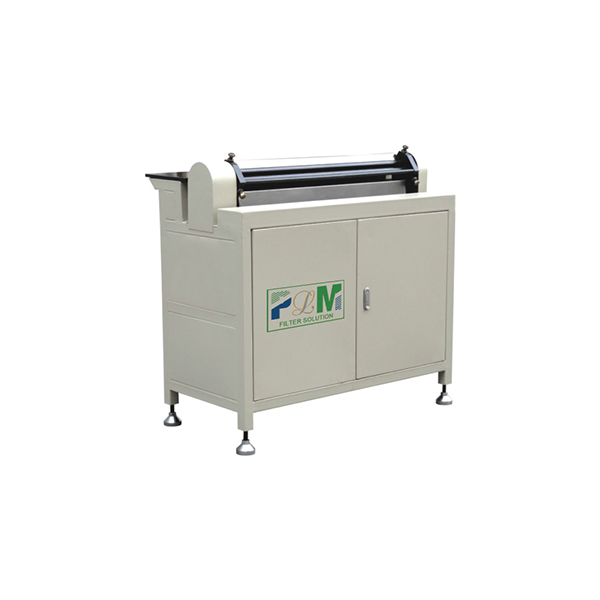Nov . 27, 2024 11:55 Back to list
Effective Carbon Filtration Solutions for Alcoholic Beverage Service and Quality Enhancements
Understanding Carbon Filters for Alcohol Service
In the world of beverage service, particularly for alcoholic beverages, the importance of clarity and purity cannot be overstated. The process of serving high-quality drinks has evolved significantly, leading to the implementation of various filtration systems to enhance the drinking experience. One of the most effective methods is the use of carbon filters. Understanding the role of carbon filters in alcohol service is crucial for both service providers and consumers who prioritize quality in their drinks.
The Role of Carbon Filters
Carbon filters utilize activated carbon to remove impurities from liquids. Activated carbon, a porous form of carbon, has a vast surface area that can absorb a wide range of organic compounds, pollutants, and odors. In the context of alcohol service, these filters are designed to enhance the taste and quality of beverages, whether it’s fine wines, spirits, or craft beers.
When alcoholic beverages are produced, they can pick up various unwanted flavors and odors from the environment, storage containers, or even the bottling process. Carbon filters effectively minimize these issues, ensuring that customers receive a cleaner, more flavorful drink. This is particularly important in settings such as bars, restaurants, and tasting rooms, where the overall experience relies heavily on the quality of the drinks served.
Benefits of Using Carbon Filters
1. Enhanced Flavor Profile The primary advantage of carbon filters is their ability to improve the flavor profile of alcoholic beverages. By removing impurities and unwanted compounds, these filters allow the natural flavors and aromas of the alcohol to shine through, providing a more enjoyable drinking experience.
2. Odor Elimination Many people are sensitive to various odors in their drinks. Activated carbon is effective at eliminating undesirable smells that can detract from the overall enjoyment of the beverage. A fresh, clean aroma is essential, particularly for wine and spirits, which are often savored for their bouquet.
3. Improved Clarity Cloudiness in alcoholic beverages can raise concerns about quality and safety. Carbon filters help in achieving greater clarity, thus enhancing the visual appeal of the drink. This aspect is especially crucial in fields like craft beer brewing, where presentation matters as much as taste.
carbon filter for alcohol service

4. Removal of Contaminants Carbon filters can also assist in eliminating contaminants such as chlorine, sediments, and other chemical residues that may affect the beverage's quality. This is particularly relevant in areas where tap water is used in the production or dilution of alcoholic drinks.
5. Cost-effective While the initial investment in carbon filtration systems may seem significant, the long-term benefits can outweigh these costs. By ensuring higher-quality products, establishments can potentially increase customer satisfaction, leading to repeat business and better reviews.
Implementing Carbon Filtration in Alcohol Service
For bars, restaurants, and wineries looking to implement carbon filtration, it’s essential to select the right type of filter based on the specific needs of the beverages being served. Different alcohol types may require different filtration approaches, and understanding these nuances is key.
1. Regular Maintenance It is crucial to regularly maintain and replace carbon filters to ensure their effectiveness. Over time, filters can become saturated and less effective, which can lead to a decline in beverage quality.
2. Training Staff Educating staff about the importance of filtration and how it impacts the drinks served can enhance the overall service quality. Bartenders and servers should be knowledgeable about the filtration process and able to explain its benefits to customers.
3. Customer Transparency Establishments might consider being transparent about their use of carbon filters as part of their marketing strategy. Customers appreciate quality and can be drawn to venues that prioritize high standards in their beverage offerings.
Conclusion
Carbon filters play a pivotal role in the alcohol service industry by ensuring that beverages are free from impurities, odors, and unpleasant tastes. The benefits of enhanced flavor, clarity, and overall quality cannot be ignored. As the demand for high-quality drinks increases, implementing effective carbon filtration systems will become a standard practice among service providers looking to elevate the customer experience. By focusing on delivering the best possible product, establishments can enhance their reputation and achieve greater success in the competitive beverage landscape.
-
OEM PLXB-1 PU Pack Trimming Machine - High Precision, Durable, Cost-Effective Solutions
NewsJun.10,2025
-
High-Performance In Line Fan Filter Trusted In Line Fan Filter Company & Products
NewsJun.10,2025
-
High-Efficiency Water Filter Making Machine Reliable Companies & Products
NewsJun.10,2025
-
Premium Metal Fuel Filter Durable & Efficient for Engine Protection
NewsJun.10,2025
-
Premium OEM 304 Rimmed Filter Disc Custom Stainless Steel Filters
NewsJun.10,2025
-
China PP Air Filter Production Line Automated & High-Efficiency Solutions
NewsJun.10,2025
